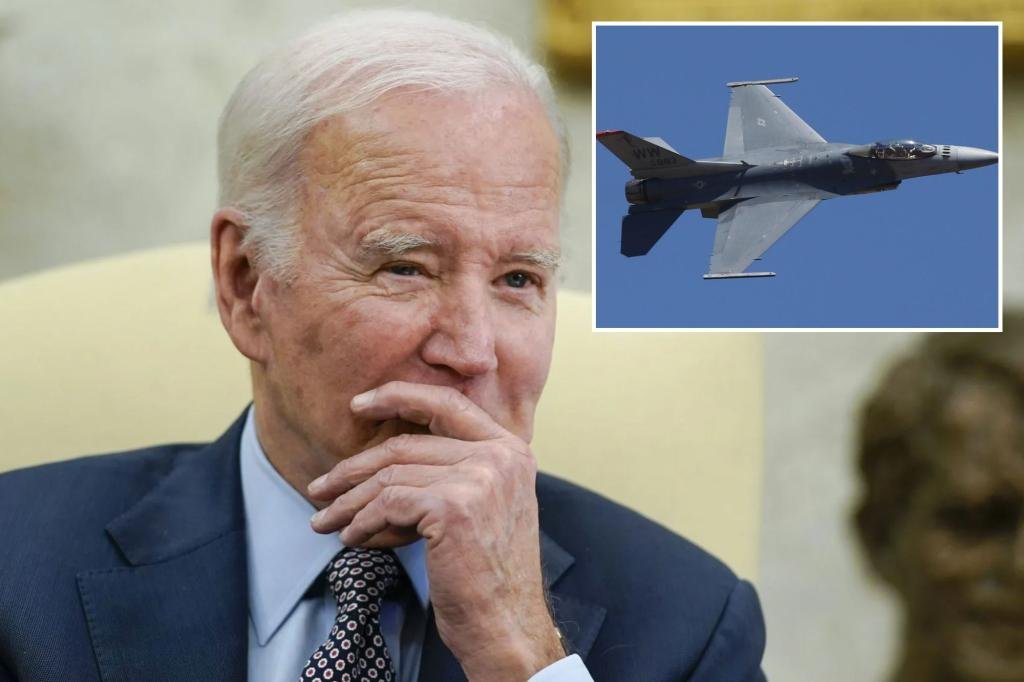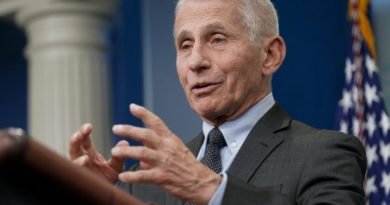Biden’s indecisive Ukraine policy risks defeat and humiliation
Whether you’re a gung-ho supporter of American military aid to Ukraine or skeptical about Ukraine’s importance to America’s national interest, the Biden administration’s erratic course should ring loud alarm bells.
The belated decision to provide F-16 fighters after months of refusal to do so is merely the latest Biden reversal, of course.
We initially resisted sending advanced HIMARS rockets — until we changed our mind.
Then we resisted supplying Patriot anti-missile batteries — until we changed our mind.
Same story for Abrams M1 tanks.
The practical effect of President Joe Biden’s halting and indecisive policy toward the conflict is to supply enough weaponry to keep Ukraine from losing but not enough to enable it to defeat Russia on the battlefield and drive the Kremlin completely out of Ukrainian territory, including Crimea.
No doubt Biden and his team fear a wider war, and perhaps provoking Russia into using nuclear weapons, and hope that at some point both countries’ exhaustion will lead to an acceptable negotiated settlement.


This is a reasonable fear, but the hesitant and incremental strategy Biden is using risks a Ukrainian defeat and humiliation for the NATO alliance.
“Those who cannot remember the past are condemned to repeat it,” runs Santayana’s old saying.
Though the circumstances are different, the Biden administration seems intent on repeating the mistakes of our Vietnam strategy in the 1960s.
The core intellectual error there was thinking the level and application of military power could be precisely calibrated to send “signals” to North Vietnam to negotiate an end to the war.
The formal doctrine was called “graduated pressure,” and like the American disposition toward the Ukrainian conflict now, in practice it meant America would supply enough force to keep South Vietnam from losing but never threatening North Vietnam with actual defeat.
The doctrine assumed the North Vietnamese Communists thought about the conflict in the same rational terms as the United States.
President Lyndon Johnson kept plaintively asking, one senior aide recalled, “‘What does Ho Chi Minh want?’ as if Ho were a mayor of Chicago holding out for five new post offices.”
What Johnson and his war strategists didn’t understand was that North Vietnam was determined to win and willing to bear a high cost to do so.

The same appears true with Russian President Vladimir Putin’s determination to subjugate Ukraine.
America is only supplying weapons to Ukraine, overseen by a handful of trainers and military advisers. That’s how the early years of Vietnam unfolded, too.
Ultimately the Vietnam War dragged in larger and larger numbers of American troops into direct combat, culminating in the humiliation of the United States and demoralization of the Western alliance for a decade.
The prospect of direct US or NATO military intervention in Ukraine seems remote, but with the apparent fall of Bakhmut in the last few days it’s possible momentum in the war is swinging to Russia.
What will Biden and NATO leaders decide if Russia gains the upper hand?
Incidentally, one of Johnson’s mistakes as the Vietnam War was escalating in its early years was failing to make a serious speech to the American people about the importance of the war. By the time he finally did so, in 1967, public opinion was already growing weary of Vietnam.

It is another telling parallel that Biden has not given a major speech about the importance of Ukraine’s independence or the reasons — and depth — of American commitment.
This is probably because Biden would like to keep our war aims ambiguous, so that when trouble comes he can bug out in the same way he did from Afghanistan.
It is remarkable to ponder a scene where our European allies, normally conflict-averse, have a more robust commitment to Ukraine than the United States, even if we are providing the bulk of the weapons.
“A great country,” the superb British commander the Duke of Wellington wrote, “can have no such thing as a little war.”
Even if American soldiers aren’t directly involved in the fighting on the ground, our practical policy of escalation through more and better weapons means the Biden administration cannot evade the truth of Wellington’s axiom.
Steven F. Hayward is a resident scholar at the Institute of Governmental Studies at UC Berkeley.




